Editors
Swapna Thacheril Sukumaran , Shiburaj Sugathan and Sabu Abdulhameed
Plant Metabolites: Methods, Applications and Prospects
1st ed. 2020

Logo of the publisher
Editors
Swapna Thacheril Sukumaran
Department of Botany, University of Kerala, Thiruvananthapuram, Kerala, India
Shiburaj Sugathan
Division of Microbiology, KSCSTEJawaharlal Nehru Tropical Botanic Garden and Research Institute, Thiruvananthapuram, Kerala, India
Sabu Abdulhameed
Department of Biotechnology and Microbiology, Kannur University, Kannur, Kerala, India
ISBN 978-981-15-5135-2 e-ISBN 978-981-15-5136-9
https://doi.org/10.1007/978-981-15-5136-9
Springer Nature Singapore Pte Ltd. 2020
This work is subject to copyright. All rights are reserved by the Publisher, whether the whole or part of the material is concerned, specifically the rights of translation, reprinting, reuse of illustrations, recitation, broadcasting, reproduction on microfilms or in any other physical way, and transmission or information storage and retrieval, electronic adaptation, computer software, or by similar or dissimilar methodology now known or hereafter developed.
The use of general descriptive names, registered names, trademarks, service marks, etc. in this publication does not imply, even in the absence of a specific statement, that such names are exempt from the relevant protective laws and regulations and therefore free for general use.
The publisher, the authors and the editors are safe to assume that the advice and information in this book are believed to be true and accurate at the date of publication. Neither the publisher nor the authors or the editors give a warranty, expressed or implied, with respect to the material contained herein or for any errors or omissions that may have been made. The publisher remains neutral with regard to jurisdictional claims in published maps and institutional affiliations.
This Springer imprint is published by the registered company Springer Nature Singapore Pte Ltd.
The registered company address is: 152 Beach Road, #21-01/04 Gateway East, Singapore 189721, Singapore
 We proudly dedicate this book to Prof. (Dr.) M Haridas, professor emeritus and founder head of the Department of Biotechnology and Microbiology, Kannur University, Kerala, India. Prof. Haridas epitomises the triumph of inventiveness over all other settings, which make ones contribution less significant, a triumph of genius over circumstances. For decades, he has pursued and achieved excellence in both research and teaching. His achievements are powerful and lasting in their impact on a global scale. What makes them so inspiring to younger generations of scientists and teachers is that they are more necessary in the present world where science only could solve the problems of environment and human society.
We proudly dedicate this book to Prof. (Dr.) M Haridas, professor emeritus and founder head of the Department of Biotechnology and Microbiology, Kannur University, Kerala, India. Prof. Haridas epitomises the triumph of inventiveness over all other settings, which make ones contribution less significant, a triumph of genius over circumstances. For decades, he has pursued and achieved excellence in both research and teaching. His achievements are powerful and lasting in their impact on a global scale. What makes them so inspiring to younger generations of scientists and teachers is that they are more necessary in the present world where science only could solve the problems of environment and human society.
Foreword
 Despite the many triumphs of modern medicine, there remain many diseases for which effective treatments are still not available, or for which modern medicines are not affordable, especially for patients living in resource-poor areas. However, many parts of the world have century-old traditions of using herbal medicines to treat a variety of medical conditions, including infections, cancer, and immune disorders.
Despite the many triumphs of modern medicine, there remain many diseases for which effective treatments are still not available, or for which modern medicines are not affordable, especially for patients living in resource-poor areas. However, many parts of the world have century-old traditions of using herbal medicines to treat a variety of medical conditions, including infections, cancer, and immune disorders.
While many of these treatments have not been rigorously tested in controlled clinical trials, challenges in clinical development consist of incomplete knowledge on their active ingredients and mechanisms of action. In addition to containing compounds to treat specific diseases currently already targeted, plants can also harbor many more metabolites that, if properly identified, could have promise for novel medical applications, or can be the basis for further chemical modification to improve efficacy and reduce the risk of adverse effects.
Further success in this research area is contingent on progress in the isolation, purification, in vitro and in vivo characterization, and production of these plant metabolites. This book provides the latest updates from world experts, investigating a variety of plant metabolites aimed at preventing or treating medical conditions. As the reader will conclude, much progress is being made, and this exciting research opens the door to further explore unchartered territories in future years.
Koen Van Rompay
Preface
Plants by way of their metabolites are a hot topic of research for all over the world. Both the types of metabolitesprimary metabolites (produced for the existence) and secondary metabolites (produced as a result of metabolic errors or produced as non-essentials and accumulated as by-products)find enormous relevance in pharmaceutical, food, agriculture and other sectors with commercial potential of billions of dollars. Plants ranging from the primitive to the highly evolved groups and those which survive in unique and diverse habitats are treasures of high-value molecules. Though there are concerted efforts taking place across the globe, the sector is yet to take a full bloom.
The book entitled Plant Metabolites: Methods, Applications and Prospects is compiled and edited by scientists from Kerala and most of the contributors of the different chapters are also from Kerala, India. Kerala is well known for its rich biodiversity and it has about 700 km long track of Western Ghats, the enlisted biodiversity hotspot. The state pioneers in sustainable utilization of biodiversity through novel practices, processes and products. Hence, the contribution to knowledge through this edited volume is directly from the players with expertise and experience evolved with a background of years. The background of herbal material utilization in Kerala goes remote in unrecorded history of folklore and in recorded history to the seventeenth century Latin classic, Hortus Malabaricus.
The book comprises twenty-two chapters with state-of-the-art knowledge on sources of plant metabolites ranging from small and primitive plant species to fully evolved trees, methods for extraction, purification and characterization of metabolites, applications of metabolites in various sectors, microbial biotransformation of metabolites for preparation of nutraceuticals, existing traditional knowledge-based practices for plant-based therapy and advanced techniques including that of gene technology for the enhanced and sustainable production of metabolites. While we have taken all the possible efforts to make the book a perfect one, there may be lapses which we are ready to accept and improve in future. We thank all who have contributed to this book and all the well-wishers for extending their support. We sincerely wish that the scientific fraternity across the globe will make use of the information presented in this book published under the banner of Springer-Nature.

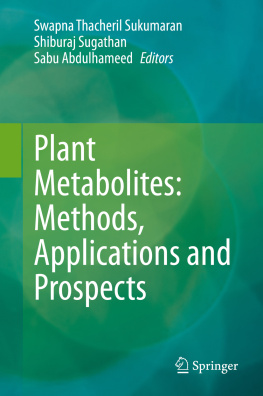
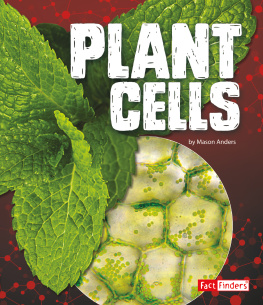
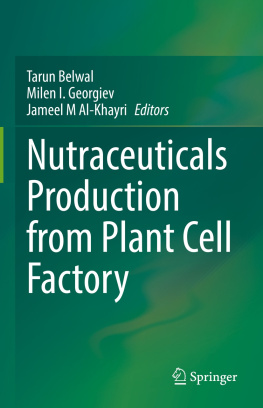
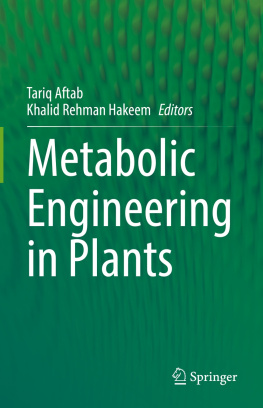
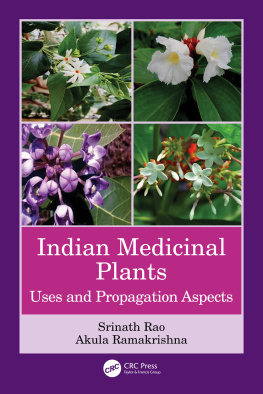

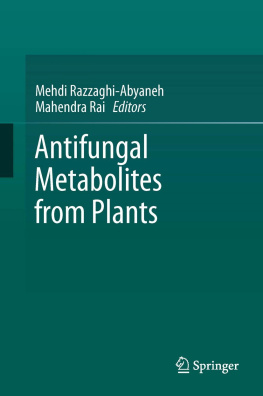
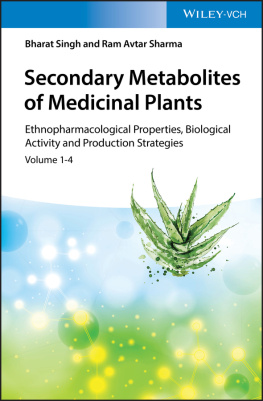
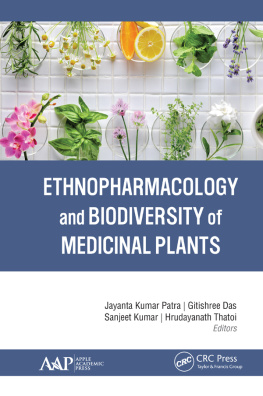
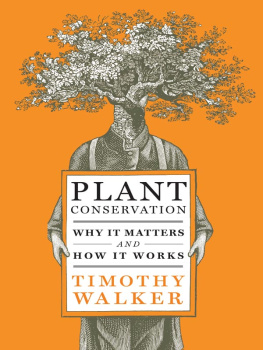
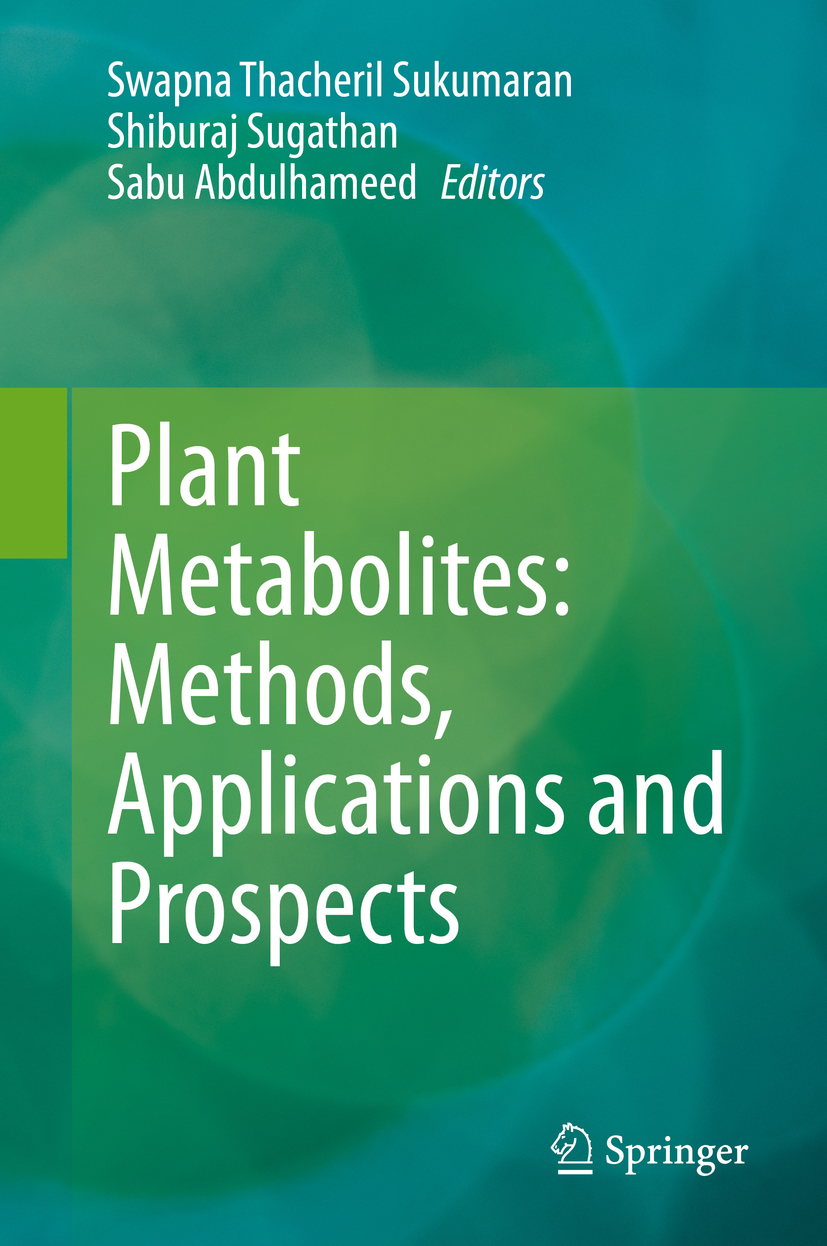

 We proudly dedicate this book to Prof. (Dr.) M Haridas, professor emeritus and founder head of the Department of Biotechnology and Microbiology, Kannur University, Kerala, India. Prof. Haridas epitomises the triumph of inventiveness over all other settings, which make ones contribution less significant, a triumph of genius over circumstances. For decades, he has pursued and achieved excellence in both research and teaching. His achievements are powerful and lasting in their impact on a global scale. What makes them so inspiring to younger generations of scientists and teachers is that they are more necessary in the present world where science only could solve the problems of environment and human society.
We proudly dedicate this book to Prof. (Dr.) M Haridas, professor emeritus and founder head of the Department of Biotechnology and Microbiology, Kannur University, Kerala, India. Prof. Haridas epitomises the triumph of inventiveness over all other settings, which make ones contribution less significant, a triumph of genius over circumstances. For decades, he has pursued and achieved excellence in both research and teaching. His achievements are powerful and lasting in their impact on a global scale. What makes them so inspiring to younger generations of scientists and teachers is that they are more necessary in the present world where science only could solve the problems of environment and human society. Despite the many triumphs of modern medicine, there remain many diseases for which effective treatments are still not available, or for which modern medicines are not affordable, especially for patients living in resource-poor areas. However, many parts of the world have century-old traditions of using herbal medicines to treat a variety of medical conditions, including infections, cancer, and immune disorders.
Despite the many triumphs of modern medicine, there remain many diseases for which effective treatments are still not available, or for which modern medicines are not affordable, especially for patients living in resource-poor areas. However, many parts of the world have century-old traditions of using herbal medicines to treat a variety of medical conditions, including infections, cancer, and immune disorders.